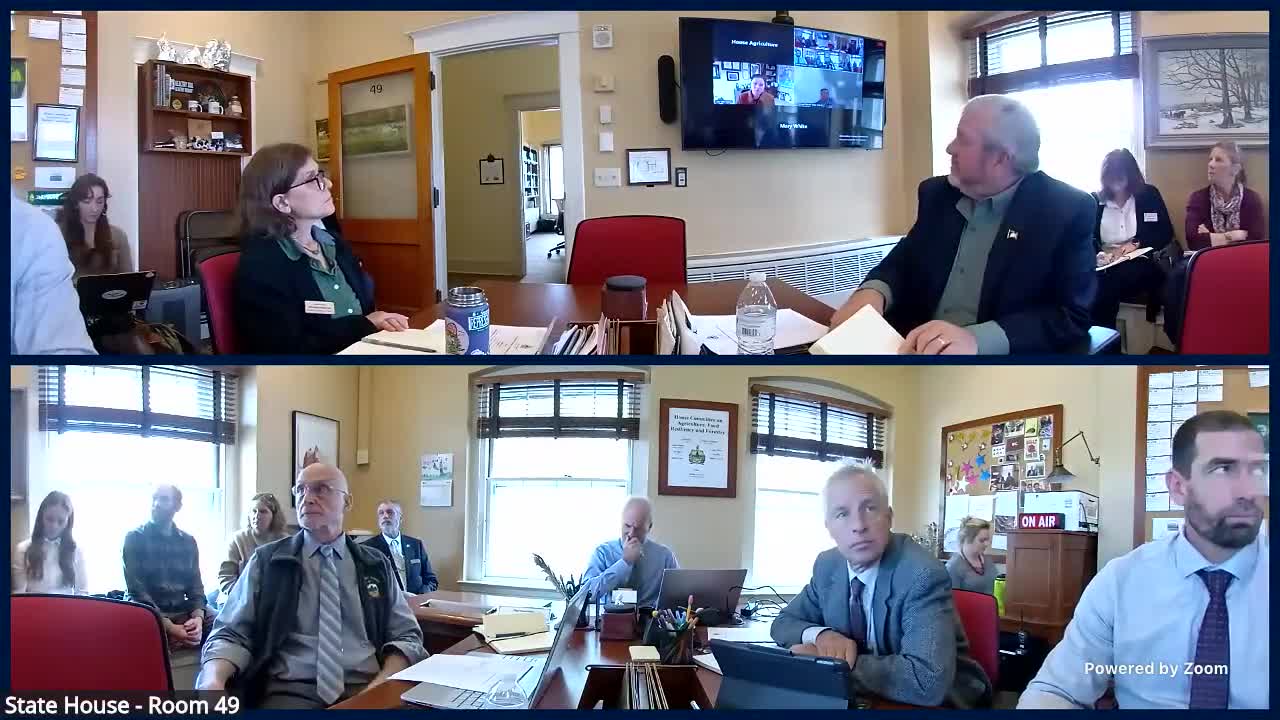Vermont delegation briefs committee on ag appropriations: SNAP funded, farm programs extended one year
Get AI-powered insights, summaries, and transcripts
Subscribe
Summary
Senators' staff said the recent government reopening included full-year USDA funding for many agriculture programs, a one-year farm bill extension and targeted line items (SARE, Dairy Business Innovation Centers, Reconnect broadband); speakers warned SNAP funding and contingency reserves were reduced and a failed hemp amendment could harm Vermont hemp producers.
Catherine Becker Van Hayes (Katie), state director for Sen. Bernie Sanders, and Ryan McLaren, senior adviser for Sen. Peter Welch, summarized recent federal actions affecting Vermont agriculture: the government shutdown and reopening, a one‑year extension for parts of the farm bill, and a slate of appropriations that include both program restorations and limits.
Katie thanked the legislature for emergency state funds that kept SNAP benefits flowing during the shutdown and warned of looming changes to enhanced premium tax credits for the Affordable Care Act. "SNAP provides about $6 in benefits per day," she said, noting the program had been fully funded in the appropriations package but at a lower level than FY25 and with a reduced contingency reserve.
McLaren walked members through specific appropriations and extensions he said matter to Vermont. He cited a $1.2 billion appropriation for the Food for Peace program (with work to move the program from USAID to USDA), $48 million for the Sustainable Agriculture Research and Education (SARE) program, nearly $8 million for the National Organic Standards Board, and $11.25 million for Dairy Business Innovation Centers (to be divided among multiple centers). He also noted roughly $50.75 million for USDA ReConnect broadband grants and $850 million in the conservation title for NRCS programs.
On emergency supports, McLaren said FSA can provide grant and low‑interest loan options when a disaster declaration is in place; his office has requested a statewide disaster declaration after two county-level declarations, which would unlock those resources. He cautioned, however, that some block grants are restricted to specific disaster years and may not be available for this year’s events.
Both staffers flagged hemp regulatory work in the Senate: an amendment from Sen. Rand Paul to repeal some hemp language was tabled and could, if enacted, affect Vermont hemp and CBD businesses. McLaren and Katie said they would continue to work with state partners to mitigate adverse effects.
Committee members pressed for clarity on how appropriation totals translate to program awards; McLaren described the subcommittee and committee budgeting process that sets top-line numbers and said program-level splits are handled in subcommittee negotiations. He also agreed to follow up with subject-matter experts to clarify recent changes to EQIP cap rules discussed during the hearing.
No formal committee action was taken; members indicated they would later hear from the Agency of Agriculture on whether state funds should fill gaps created by federal pauses or rescinds.
